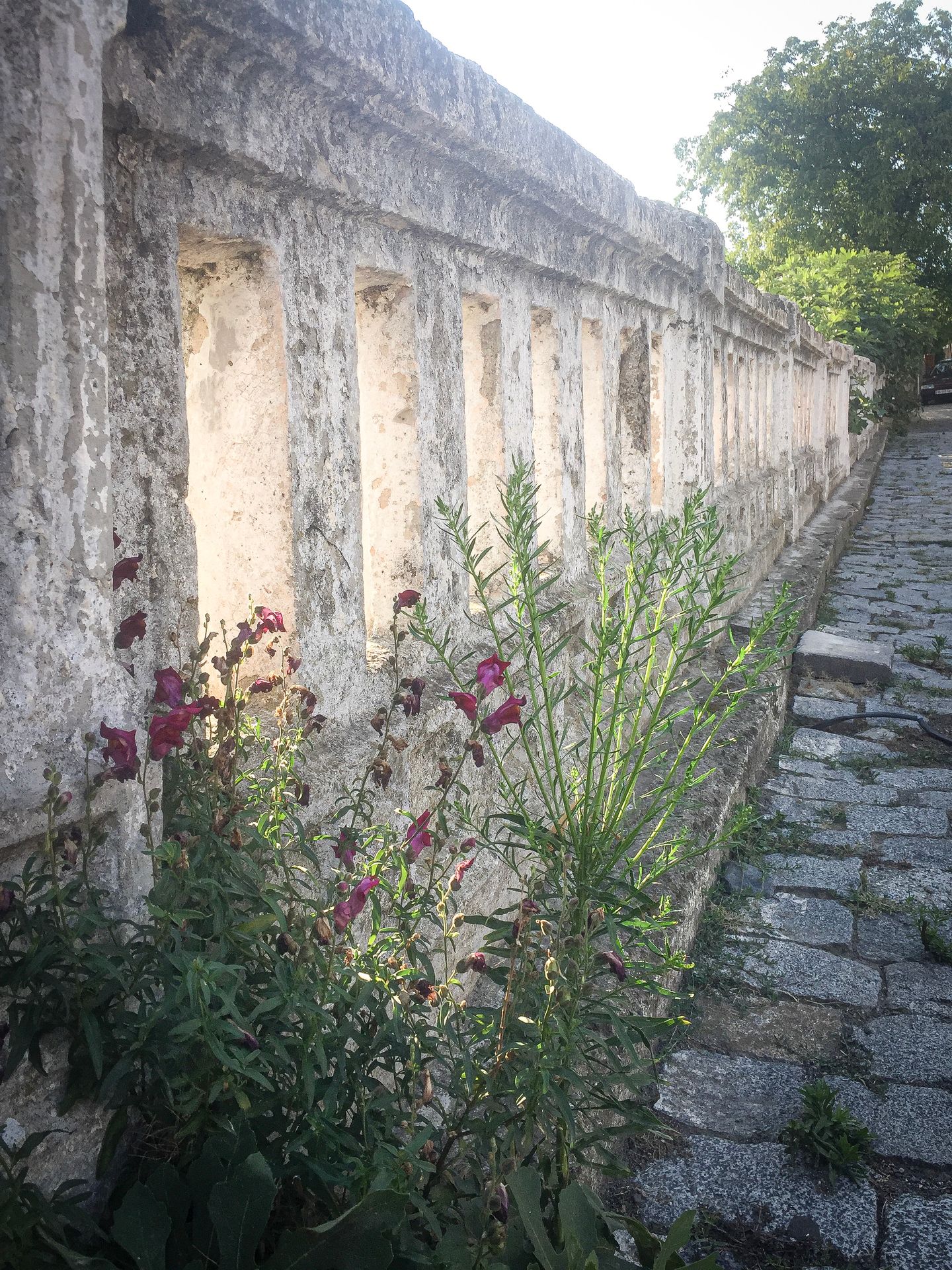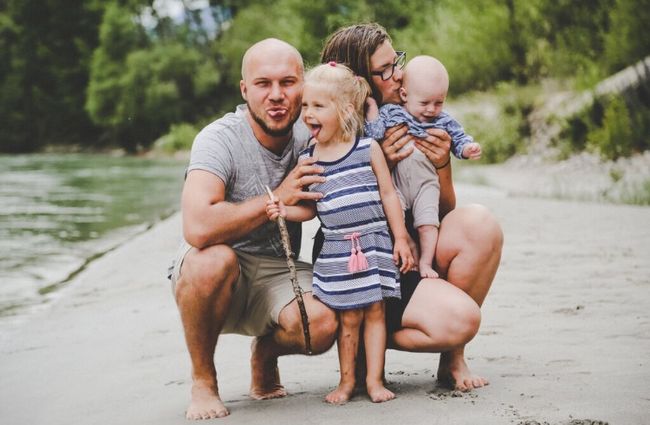Money rules the world... and Azerbaijan
પ્રકાશિત: 04.09.2019
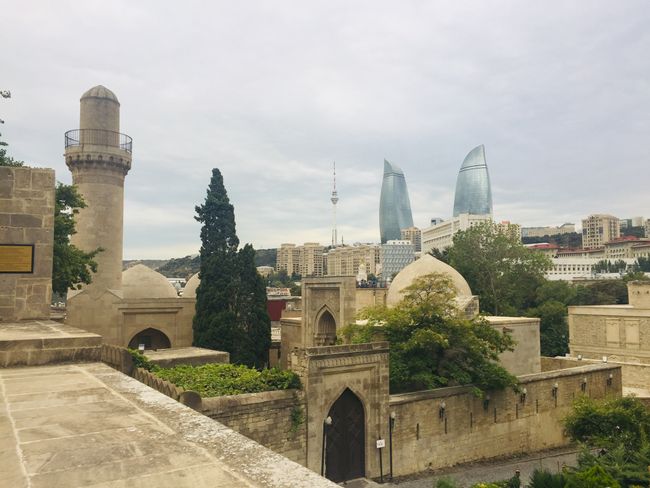
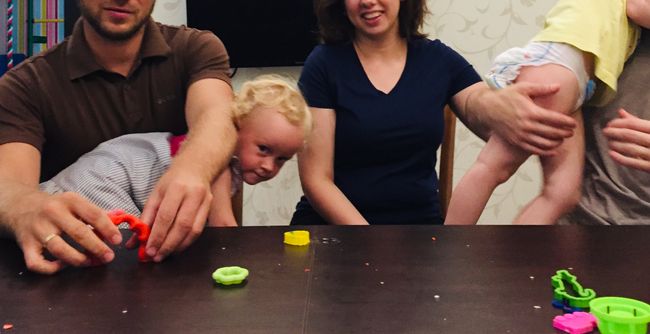
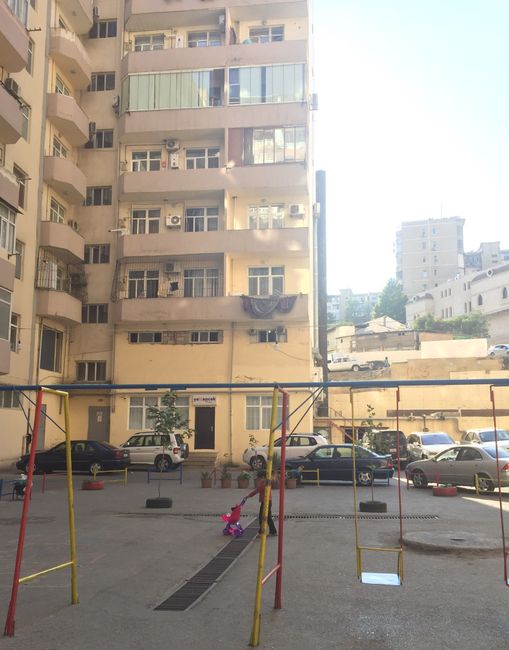
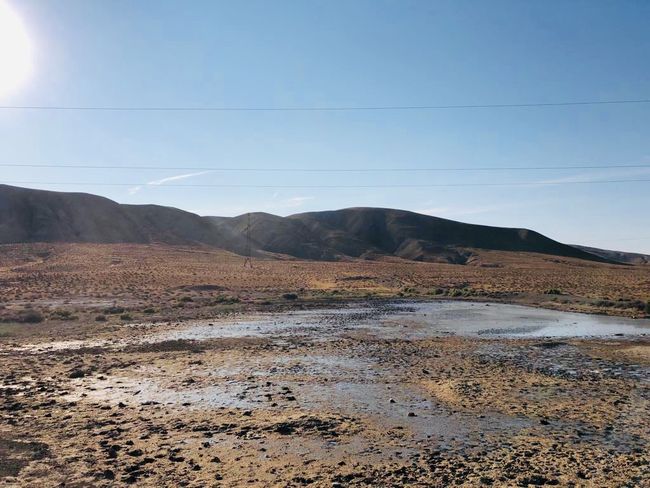
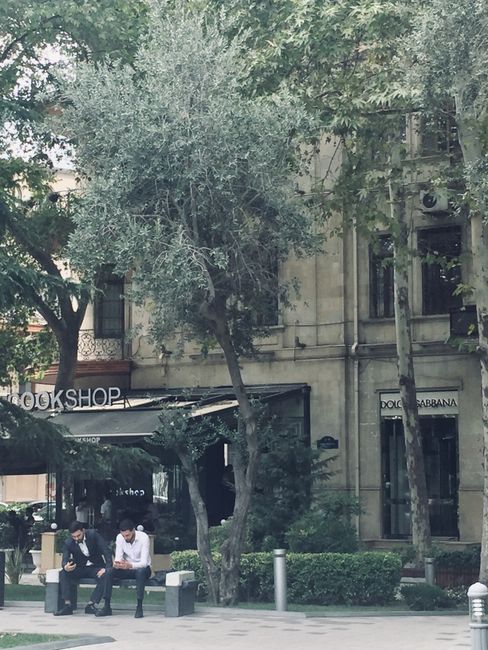
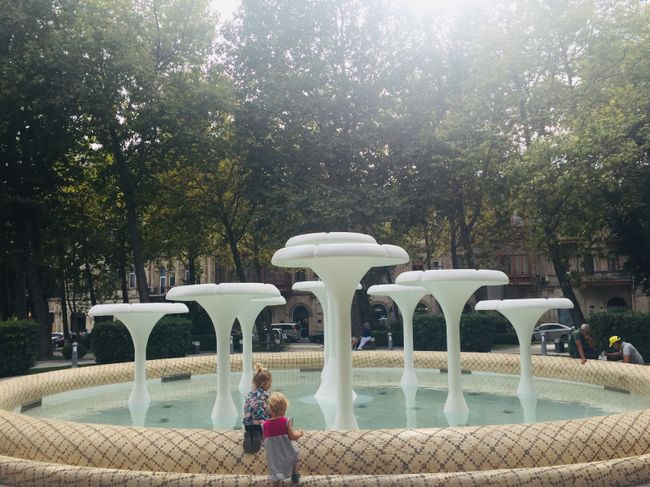
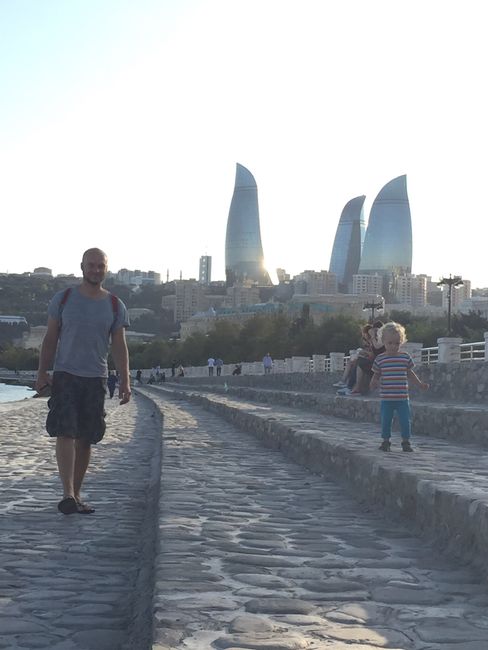
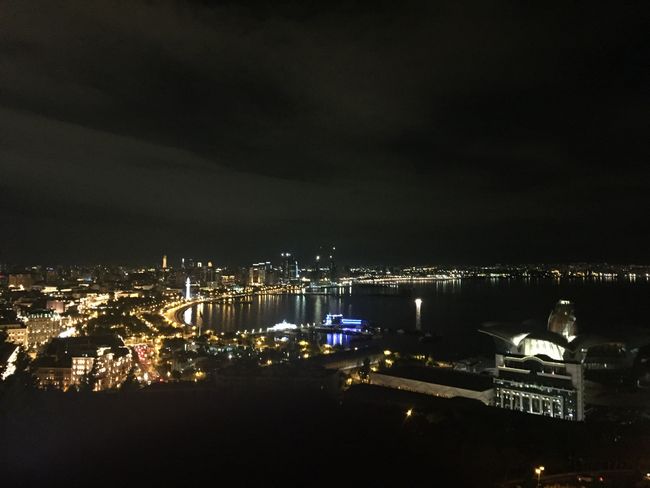
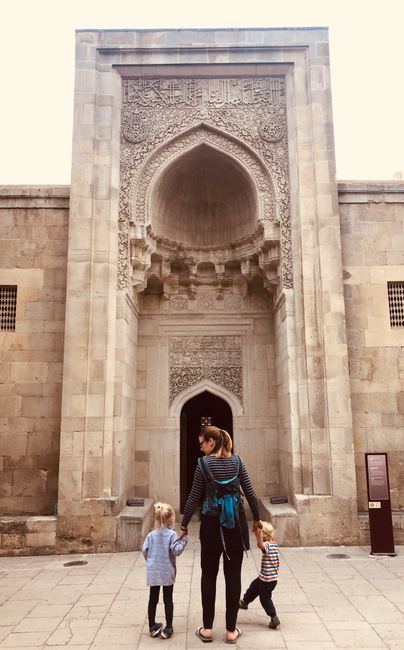
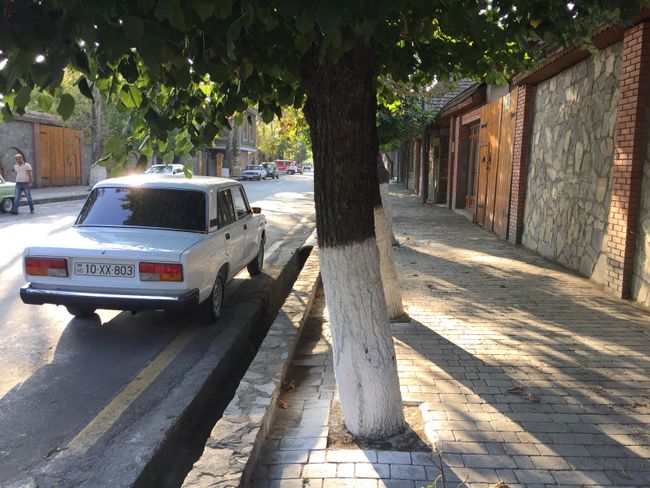
ન્યૂઝલેટર પર સબ્સ્ક્રાઇબ કરો
We are regularly asked by you: How can you afford it? Just traveling with 4 people, without income? That's an important question. We have lived frugally in recent years and earned enough to save. And just as frugal as we have lived so far, we travel. We use public transportation, often cook for ourselves, and don't buy souvenirs. So far, we have not spent as much per month (including flights and everything) as we would have paid for our monthly rent in Switzerland. And that brings us to the most important reason: we can afford it only because we come from one of the richest countries in the world and travel to relatively poor countries.
Here in the Caucasus, the economies in which we are staying are not doing so well. The prices are very low for us, yes. We can travel 6 hours by air-conditioned bus for 4 francs/euros per person. Insane. We buy food and vegetables for one day and pay 1 franc/euro. Unbelievable. But only advantageous for us. Because when converted to the 200 to 300 francs/euros that an average person earns here, it is quite a lot. What we have done - saving money outside of our daily living expenses, to then go travel or buy an apartment, for example - is not something that people here can easily do. They have to borrow money or give up on the new car or the good gas stove.
In Georgia, pretty much everyone we met and saw on the streets was in a similar situation. And what we had heard about Azerbaijan - namely that it was more expensive, but that the infrastructure and healthcare system were catastrophic - confirmed our expectation of traveling to a poor country again. So the surprise was great when we arrived in the capital Baku by night train - and ended up at a new, huge train station made of marble and modern design. There were over 20 fancy workspaces for people to work on their laptops while waiting - as you would expect from international airports. We didn't see anyone working on laptops and sat there for our breakfast. Immediately, multiple security guards appeared, staring at us but not daring to send us away. Out of nowhere, a cleaning lady appeared, sternly cleaning up every crumb our children dropped. It was surreal - and we didn't know what to make of it (by the way, there was no other place where you could eat. Everything was made of marble and there was security personnel everywhere).
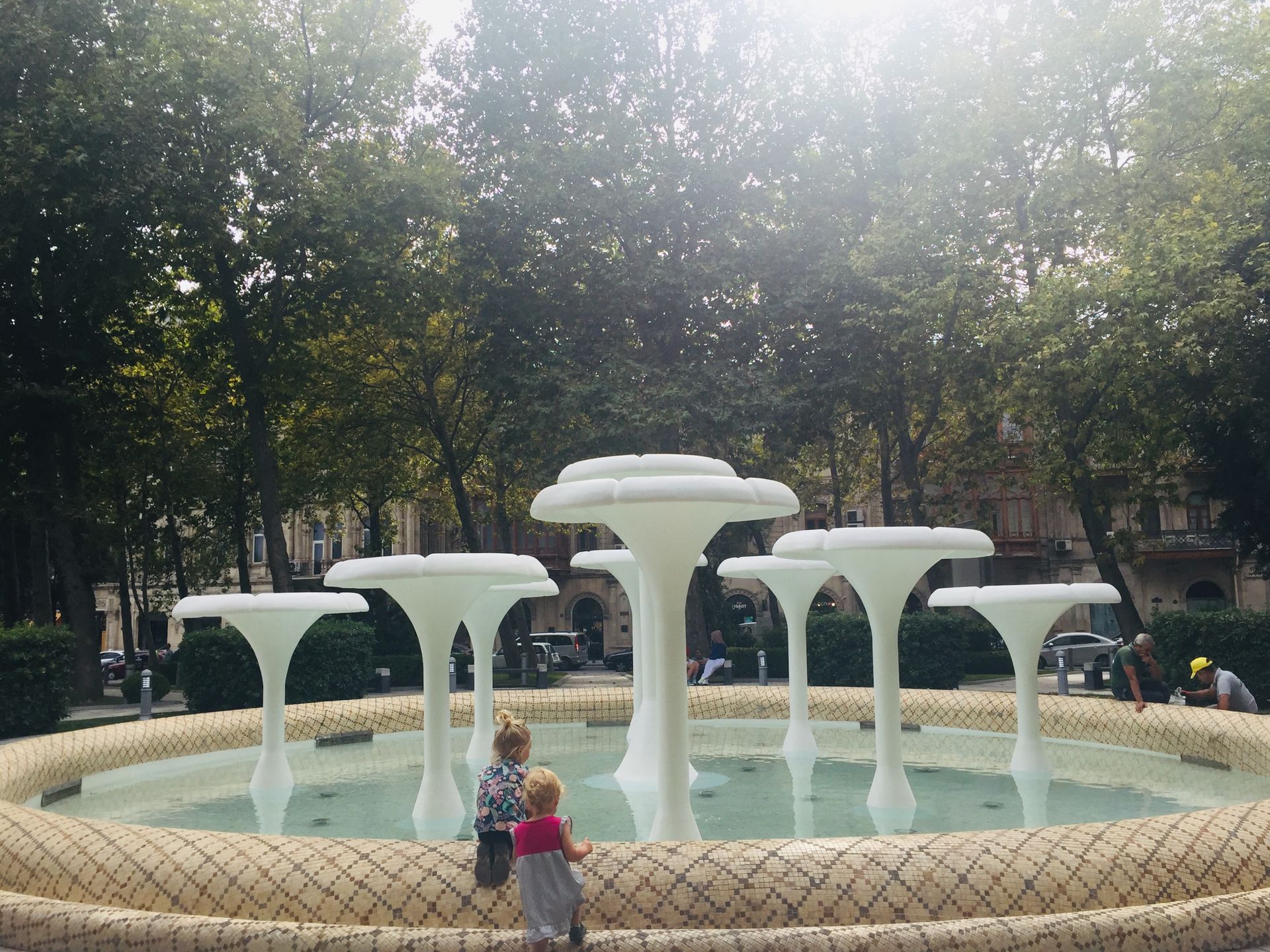
The surprise continued. Our path was paved with marble. Gleaming, sterile clean. And chrome, lots of chrome rails. Underpasses, metro stations, parks. We strolled into the old town of Baku, where our small one-room apartment was located (unfortunately not made of marble and also a bit shabby - as I said, traveling frugally). One fancy hotel after another. Expensive restaurants, completely in oriental style with classic decoration. We didn't see a single stray dog.
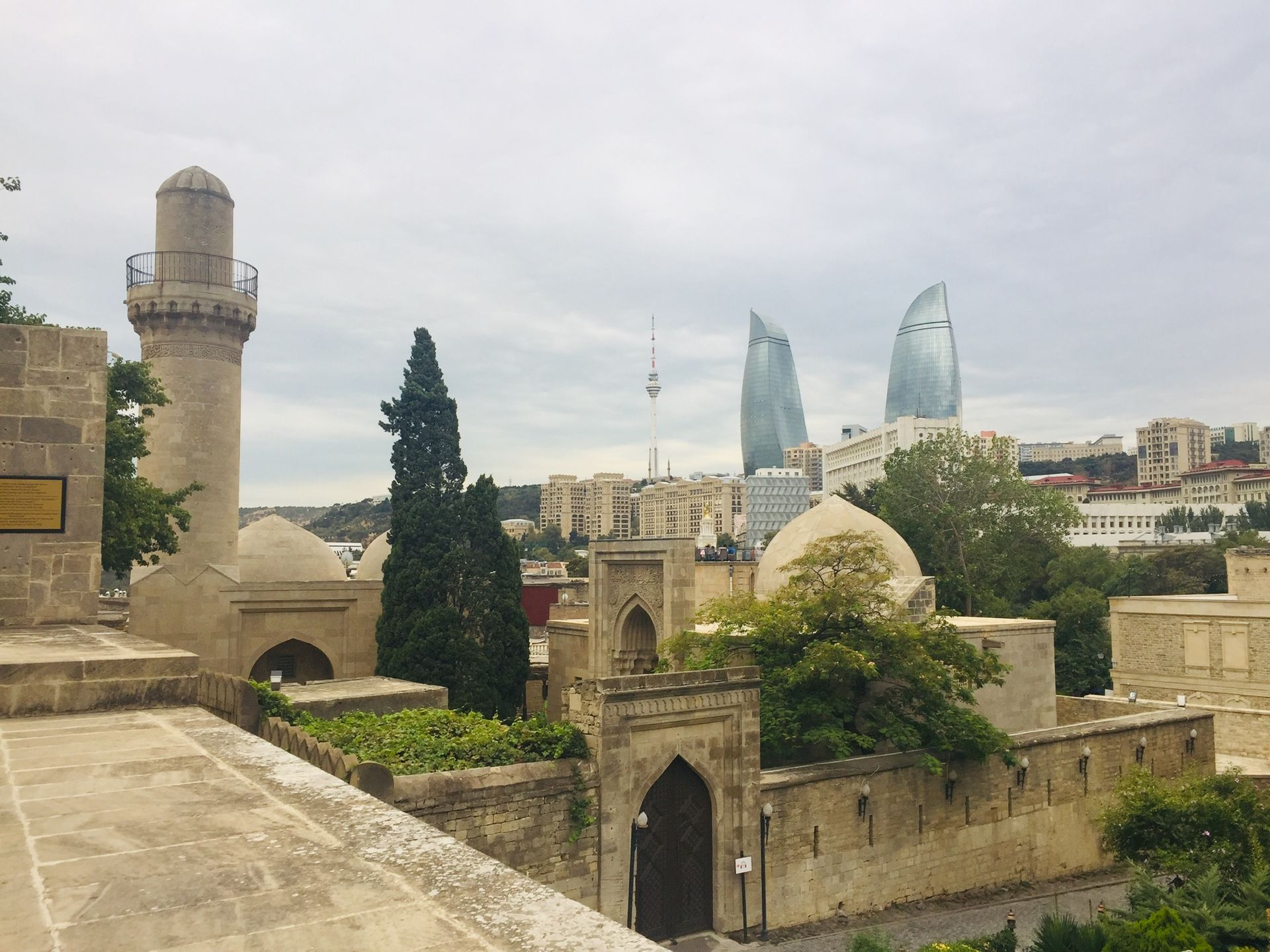
Right next to the old town, which really looked like something out of 1001 Nights, with its Persian architecture and lovingly restored buildings, there was a promenade for strolling right by the sea. Shopping streets and a pedestrian zone with many restaurants. We could hardly believe our eyes. It was like a parade of all the brands that have a reputation. We don't even know all of them. Gucci, Versace, Prada, and Co. Paired with the impeccably maintained sidewalks and the many, many (!) expensive SUVs and shiny show-off cars parked in front of the shops, we felt like we had gotten lost in Zurich.

We preferred to flee to the park - everything here was also made of marble, next to lush green lawns, with exotic trees imported from Africa and Italy, and wide fountains. Mind you: around us was steppe. Miles of brown hills and no water. In front of us, the salty sea. If you went very close, you could see a slight sheen of oil on it.
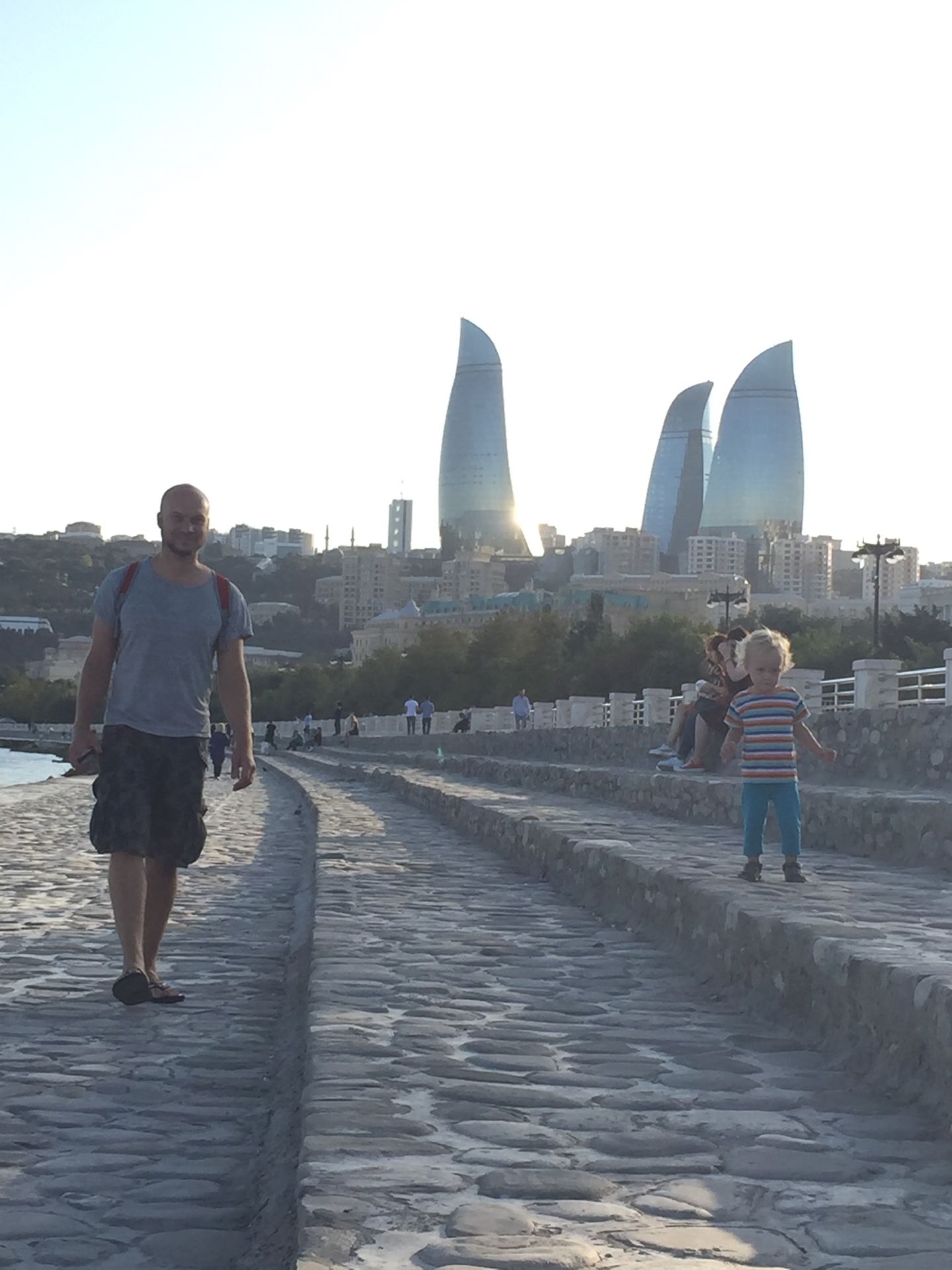
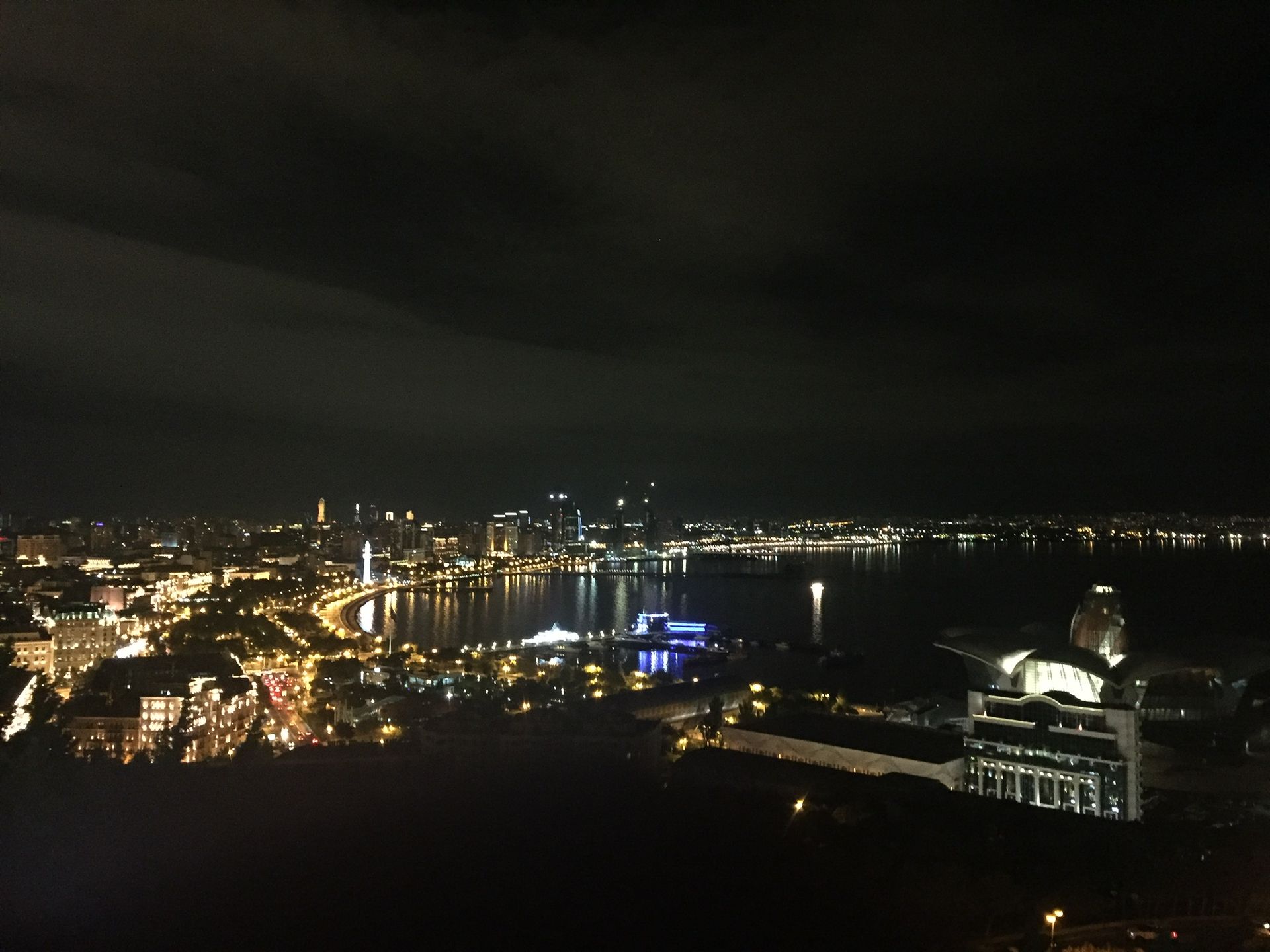
This sheen - and all the oil rigs in the open sea and outside the city - is also the secret that has created this surreal pseudo world. Oil. Azerbaijan has oil in abundance. Even during the time when caravans passed through here, the oil was exported to Europe or China in containers (at that time, among other things, as cosmetics and medicine). It was one of the first countries where black gold was extracted. Today, Azerbaijan is not one of the top players in the global oil industry, but the EU is one of its most important trading partners. So it is realistic that some of the liters of gasoline in your cars or some toothbrushes are made of oil that is being drilled here in this sea in front of our eyes. About 10 years ago, Azerbaijan granted an extensive drilling license to several international companies. Since then, more oil has been extracted. And with that, money has also been earned. A lot, a lot of money.
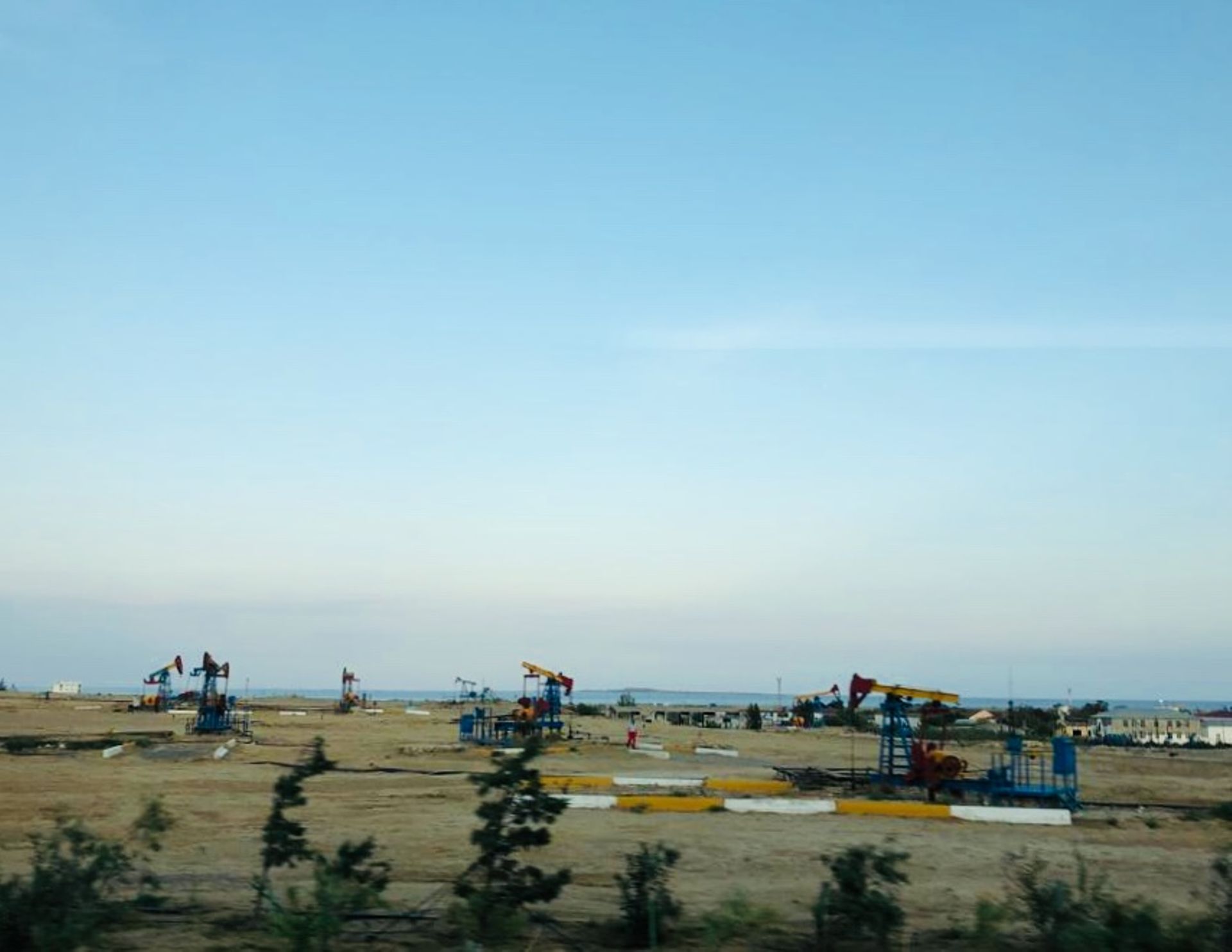
We are wondering. If Azerbaijan can earn so much money - much more money than we could smell in Georgia - then it must be visible, right? And because we are curious, we play detectives and sniff along money notes.
In the city center, where we mostly spend our time, it is easy to see the banknotes. Apparently, there must be a broad upper class, which is also confirmed by a local. People who drive Rolls Royces and shop in Prada with heaps of bags. Who sit in expensive restaurants and not with their well-dressed children - they are on the playground, just like us, but with their nannies.
In the city center, there is also water all day long, there are plenty of police officers who make sure that the European, big city backdrop remains just that - a backdrop. Aging, bent-over women walk around tirelessly, collecting leaves, cigarettes, and little papers with brooms. There are incredibly many garbage bins. And yet - there they are, the local teenagers, the busy businessmen - they simply don't care. They just throw their trash on the street. And right after, one of the many women comes and sweeps it up. We sense a backdrop, a falseness of this cleanliness that doesn't fit the people who live here.
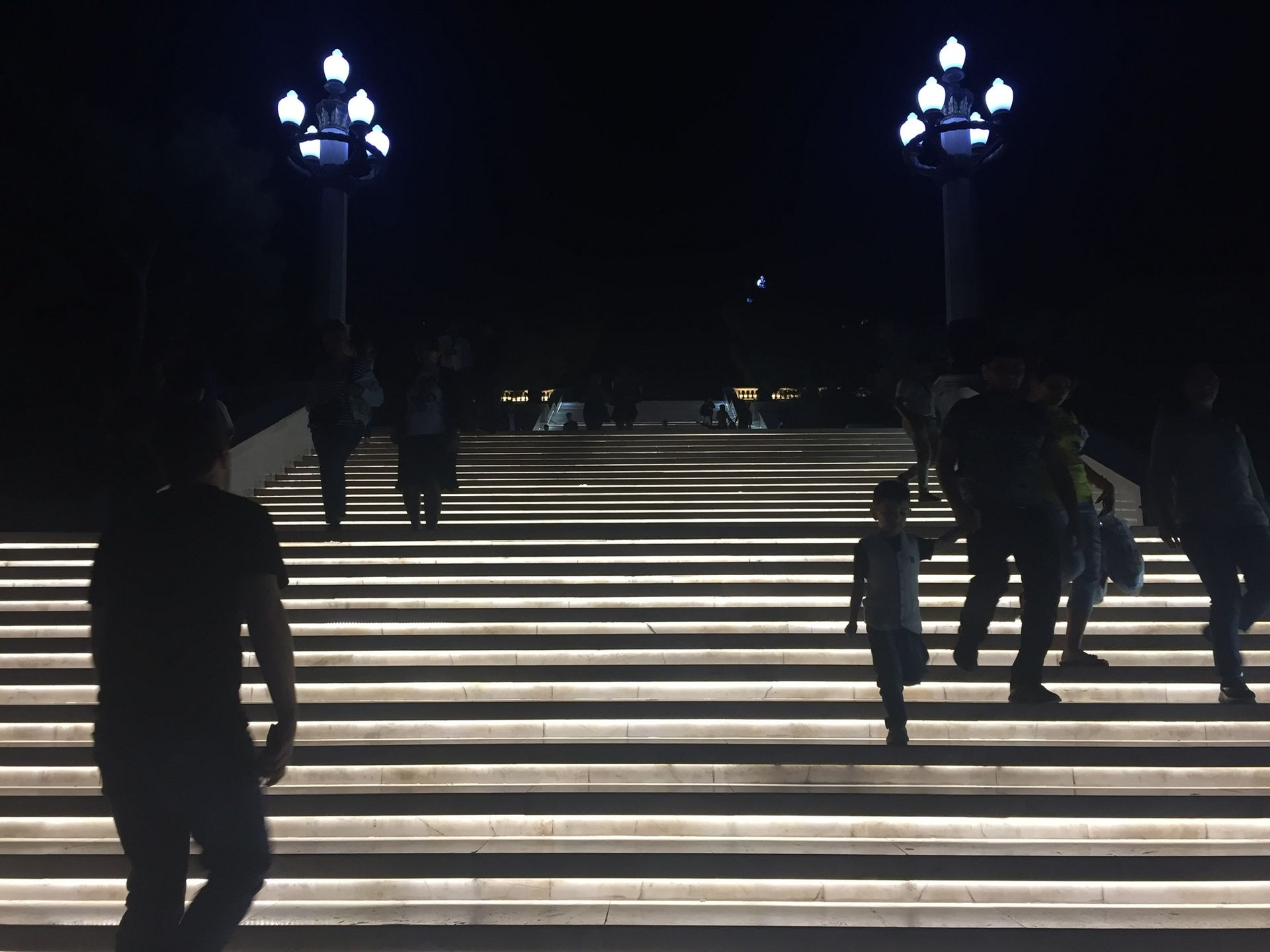
And there is the next trace of money: Because this facade is primarily meant to impress us - tourists. We may be the only tourists from Western Europe staying in Baku, but it's teeming with Saudis and large families from Dubai, Iranians and Turks, who photograph everything and everyone (especially our children) and let themselves be driven around by fake Venetian gondoliers. It's as if an expert committee has made it their main task to prepare the city in such a way that tourists are impressed: elaborately renovated museums, fountains, observation platforms, sculptures... all that - costs money. Way too much money, in our opinion.
We wonder what life is like next to this Disneyland. For the remaining 90% of the residents of this city. Through the mediation of a friend, we have the chance to get to know locals. They invite us to their homes. It's a wonderful day, we laugh and chat (they speak very good English) and discover so many similarities.

They are just like us - educated, young families, middle class - but here in Baku. And that's the difference. Because middle class here means that you have to install a water tank yourself so that you always have running water. It also means that you have to take out a loan if you want to go on vacation. We don't talk directly about money - somehow we find it embarrassing - and we are happy for our newfound friends that they can somewhat arrange their lives. But the fear of the abyss - that finances are not sufficient and that you belong to the many, many people who have to live with the poor infrastructure - somehow wafts through their comfortably furnished apartment. And everything outside of this apartment seems like a big financial chaos to us. Inadequate sewerage, bad doctors, and corrupt politicians. What we hear sounds like there is no money around us.
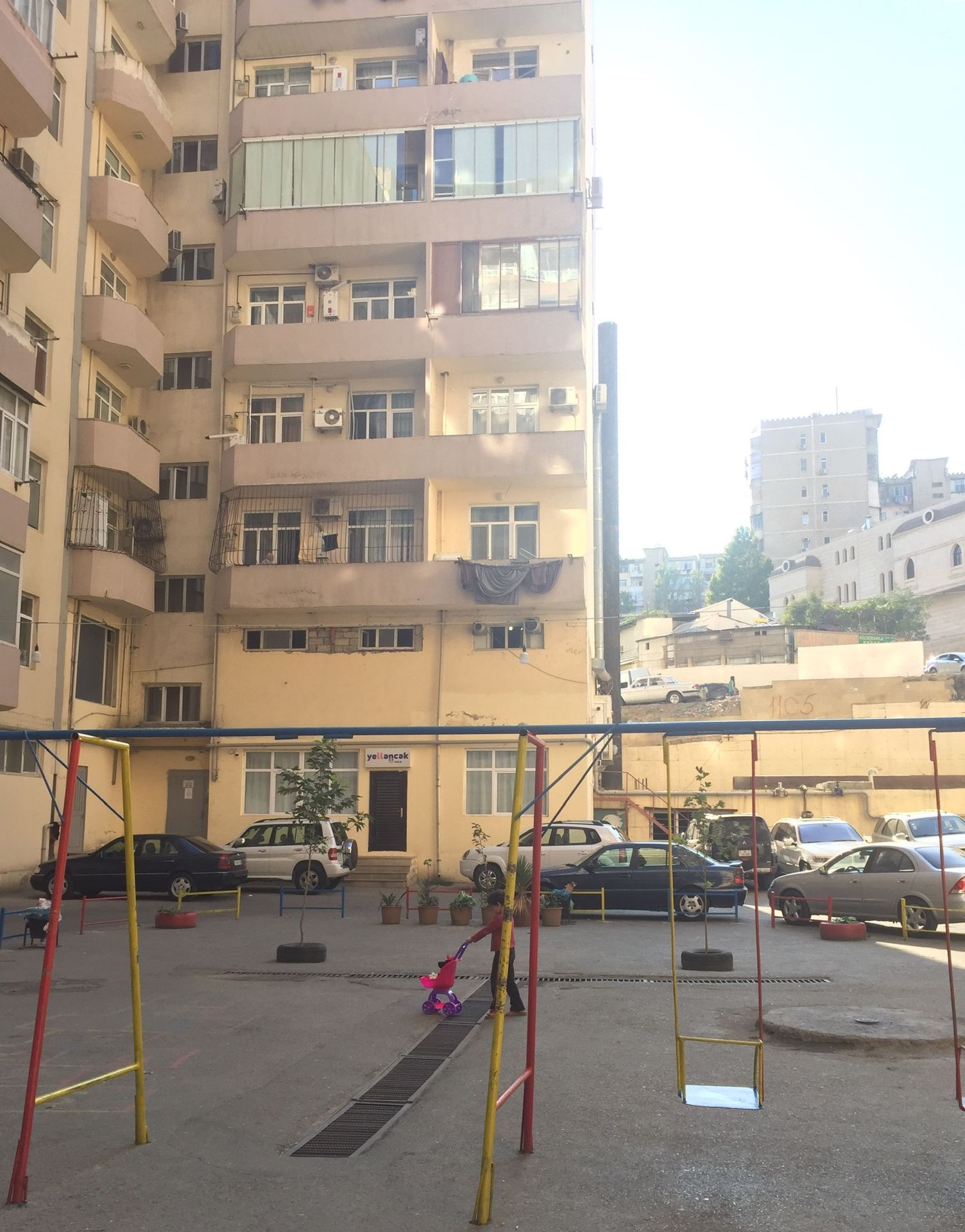
After a few days, we escape this imbalance. We take the bus to the north of the country, to Sheki. It seems that the influence of oil money decreases with the distance from the city center. While our acquaintances in the city center didn't have good heating, they did have a modern park with a playground, here in Sheki, they have neither. It's just as if there is no wealth. One old Russian Lada after another drives by us.
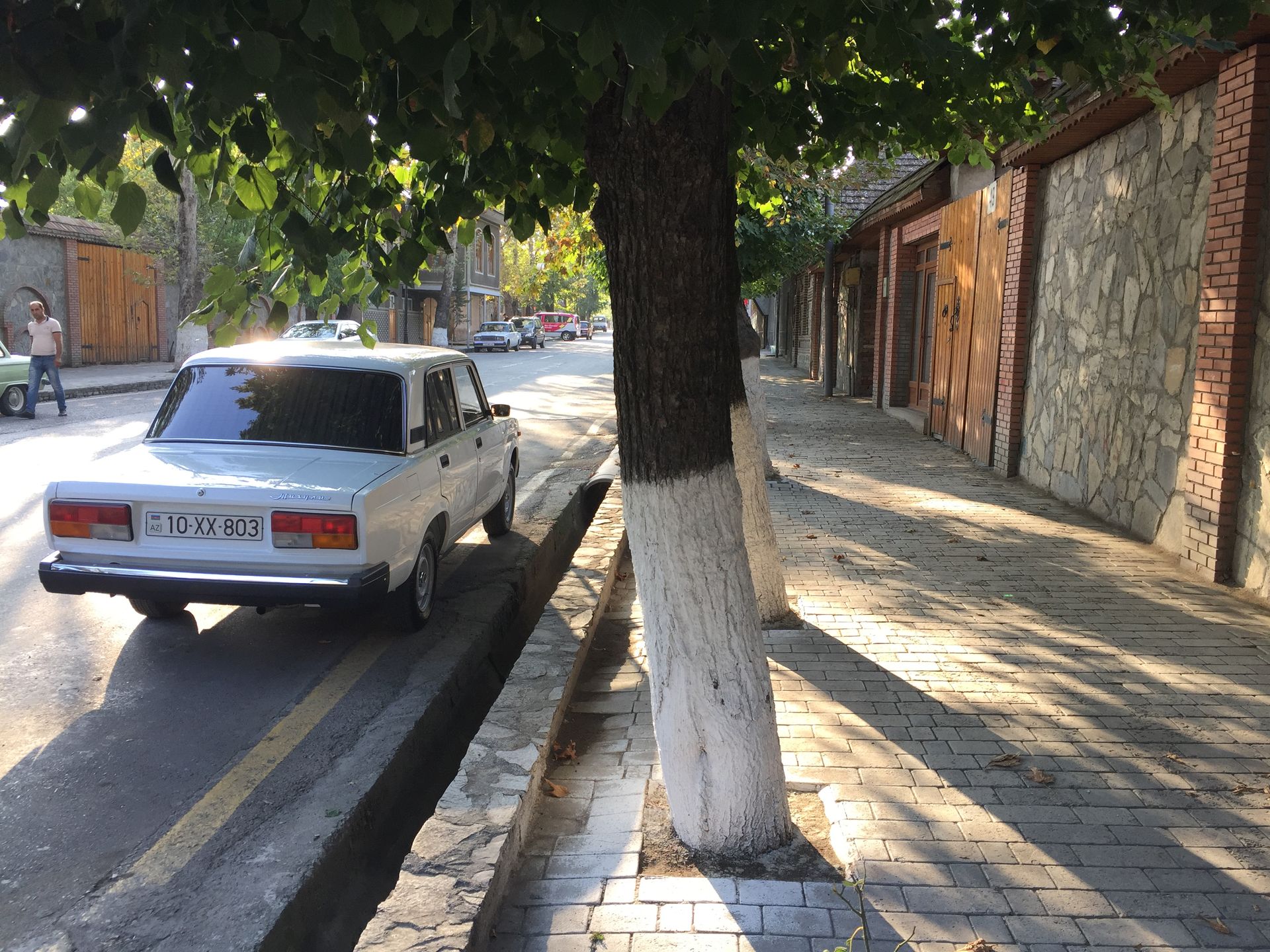

People sell their garden vegetables, men drink tea, someone has an amputated leg. It all seems like another time. We feel sorry for these people that they have to live with such poor infrastructure. But somehow, we feel more comfortable here. Maybe we're just not big city types. Or maybe we prefer places where at least everyone is in the same boat.
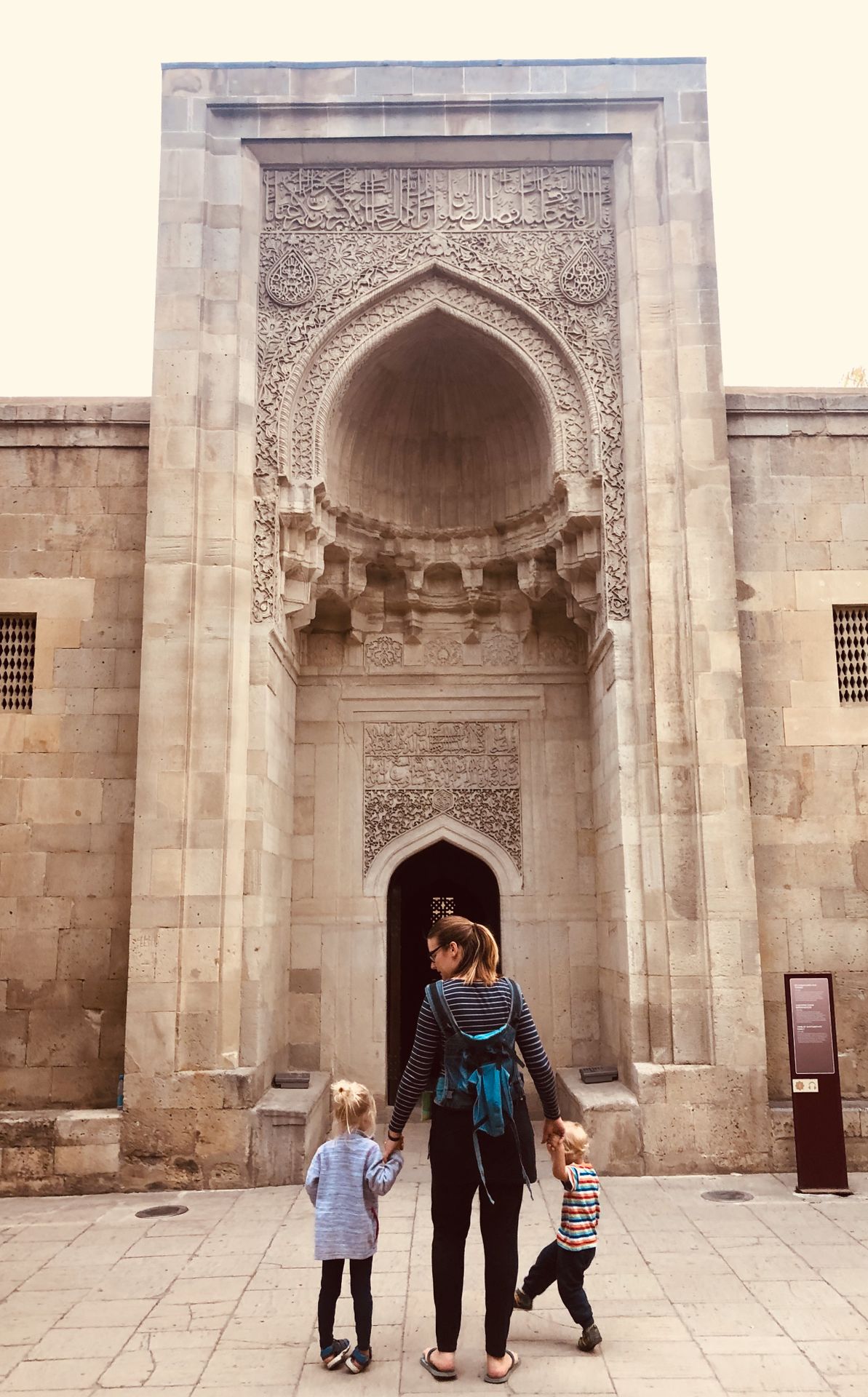
ન્યૂઝલેટર પર સબ્સ્ક્રાઇબ કરો
જવાબ આપો

મુસાફરી અહેવાલો અઝરબૈજાન
